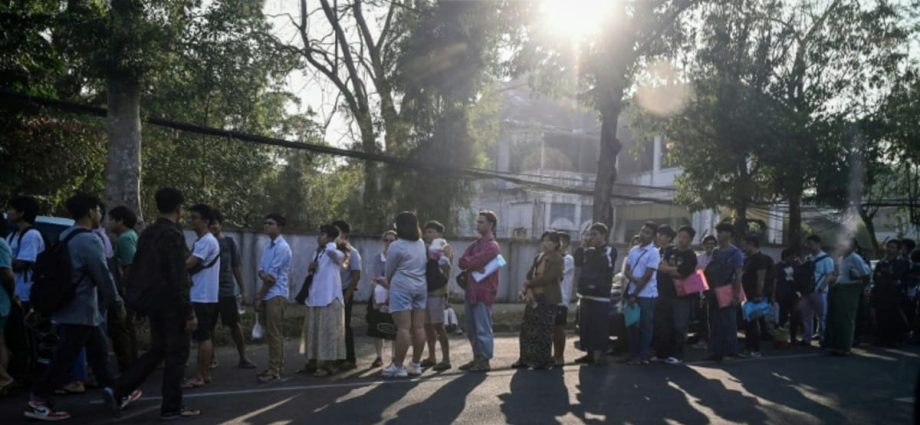
Student Aung Phyo, 20, said he arrived at the embassy at 8pm on Thursday and slept in his car before starting to queue around midnight.
“We had to wait for three hours and police opened the security gate around 3am and we had to run to the front of the embassy to try to get places for a token,” he told AFP, using a pseudonym because of fears for his safety.
“After we got a token, people who didn’t get one were still queuing in front of the embassy hoping they might give out extras.”
The law was authored by a previous junta in 2010 but never used and it is not clear how it will now be enforced.
No details have been given about how those called up would be expected to serve but many young people are not keen to wait and find out.
“I will go to Bangkok with a tourist visa and hope to stay there for a while,” Aung Phyo said.
“I haven’t decided yet to work or study. I just wanted to escape from this country.”
The junta has said it is taking measures to arm pro-military militias as it battles opponents across the country – both anti-coup “People’s Defence Forces” and more long-standing armed groups belonging to ethnic minorities.
Junta spokesman Zaw Min Tun said on Saturday the military service system was needed “because of the situation happening in our country”.
More than 4,500 people have been killed in the military’s crackdown on dissent since its February 2021 coup and over 26,000 arrested, according to a local monitoring group.

